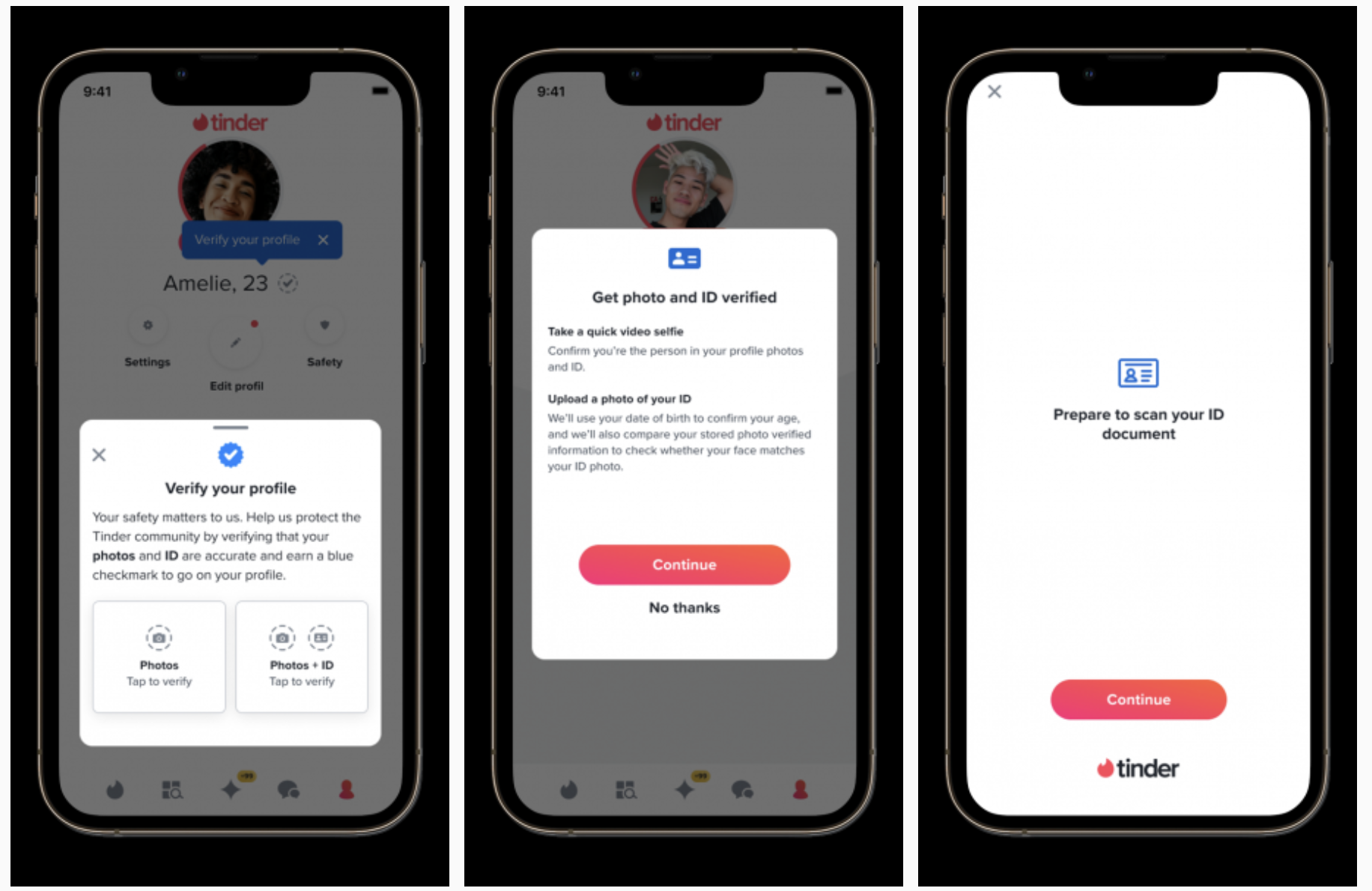Tinder is expanding its identity verification program to users in the U.S., U.K., Brazil and Mexico, the company announced on Tuesday. The program serves as an additional step for users to confirm the authenticity of their profiles on the dating app and receive a blue verified checkmark. Tinder plans to make this feature available in the U.S. and Mexico by summer and in the U.K. and Brazil by spring.
The expansion of the feature comes as artificial intelligence is making it harder to determine what is real and what is fake. It also comes as the Federal Trade Commission (FTC) reported last year that romance scams cost victims $1.3 billion in 2022, while the median reported loss was $4,400.
Tinder first piloted the identity verification program last fall in Australia and New Zealand. The company found that users who completed the ID Verification option saw a 67% increase in matches than those not verified.
To verify your identity in the app, you need to provide a video selfie and a valid driver’s license or passport. A third-party vendor will then check to see if the face in the video selfie matches both the photo on the ID as well as the person’s profile photos. The verification process will also check the date of birth on the ID.

Image Credits: Tinder
The ID Verification tool is not to be confused with Tinder’s Photo Verification feature, which allows users to prove to others they’re not a bot or a catfish. When Tinder first launched Photo Verification, it required users to take pictures of themselves, posing as instructed, to become verified on the dating app. However, last year, Tinder strengthened the process by requiring a video selfie instead of photos.
Tinder now says that users who only complete the app’s Photo Verification will now receive a blue camera icon badge, while users who only complete the ID Verification will receive a blue ID icon badge. Users who complete both the ID Verification and Photo Verification will receive a blue checkmark.
By adding ID verification to the dating app, Tinder aims to help users feel more confident that they’re talking to a real person as opposed to a scammer or catfish.
Today’s announcement doesn’t exactly come as a surprise, as Tinder announced back in 2021 that it planned to make voluntary ID Verification available globally in the future. The company has been developing its identity verification tool for years, as it first launched it in Japan back in 2019, where verification is mandated by law. It makes sense for Tinder to expand ID verification to more countries, especially as AI scams and romance scams are on the rise.



